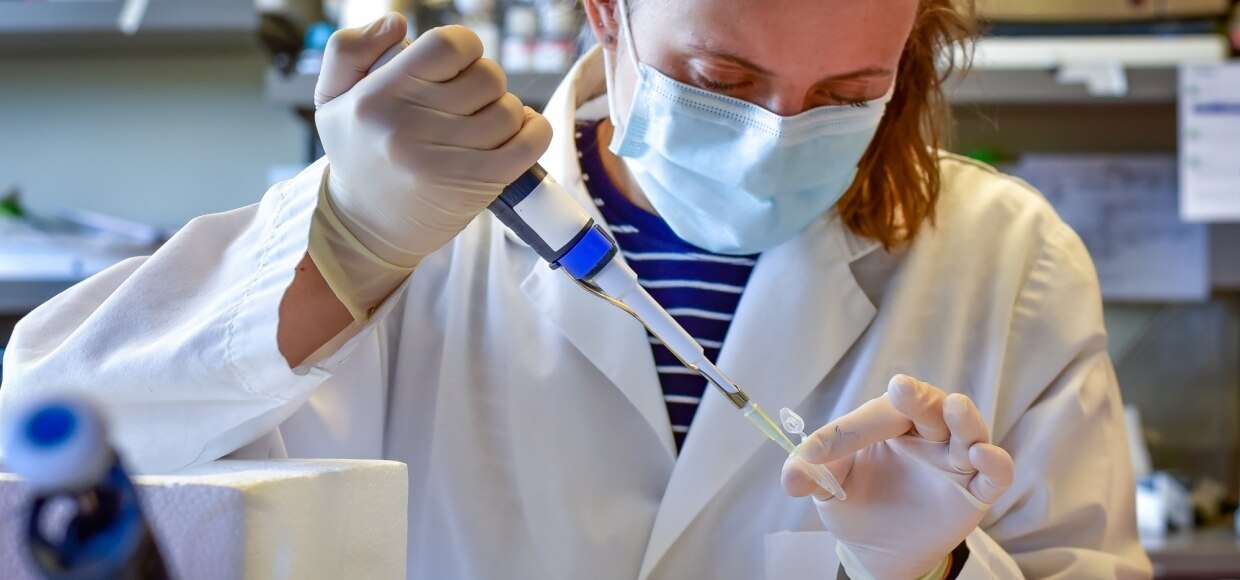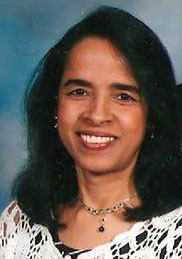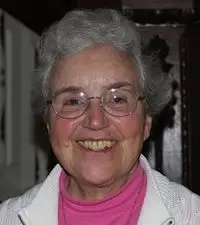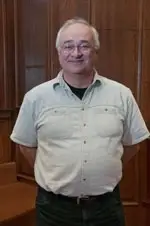Forensic Biology is the application of concepts and procedures used in the biological sciences, typically in a medico-legal context. Forensic biologists analyze cellular and tissue samples, as well as physiological fluids that are relevant to a legal investigation. These techniques can also definitively identify paternity/kinship relationships and are used to determine the manner, mechanism, cause and time of death.

Forensic Biology
WHY STUDY FORENSIC BIOLOGY AT CHC?
At Chestnut Hill College, the science faculty members are skilled in critical sub-disciplines in forensics, including but not limited to: forensic biology, forensic chemistry, cell and molecular biology, molecular biology, recombinant DNA technology, biotechnology and Human Genome Research. As with other biology majors, the class sizes are small, affording individualized and close interaction with faculty members in the Center.
A CHC degree in forensic biology includes an appropriate track of courses that will permit placement of graduates into reputable graduate programs in forensic science, molecular biology, and biotechnology. Majors with this degree also can and often apply to pre-professional schools in the allied health sciences and related health care professions.
Recent students have gone on to earn graduate degrees at several of the nation’s top universities including entry into competitive research programs as well as forensic science-specific graduate programs most recently at Arcadia University and George Mason University.
In addition, Chestnut Hill College sponsors a very successful annual Bio-medical Seminar Series, inviting prominent speakers in cutting-edge fields of basic and medical research. The series, which is close to celebrating 30 years of distinguished speakers, provides a forum to review and discuss recent advances in bio-medical research and fosters meaningful interactions with our neighboring major basic and medical research institutions. Eric Vey M.D., a forensic pathologist overseeing high-profile forensic cases in Western Pennsylvania, was an invited guest speaker in this excellent professional series.
The Biology Department sponsors an annual seminar series:
The Biomedical Distinguished Lecture Series, initiated in 1994, sponsors prominent speakers in the biomedical field and in basic research.
This twice-yearly seminar provides a forum for learning about recent advances in basic research, and biomedicine, and exposes students and faculty to prominent scientific and medical professionals. The meetings foster collaboration, interaction, and career contacts for students pursuing careers in basic research, health, and medicine, as well as environmental issues and policy. As well, the department invites other speakers on campus who have expertise in specific disciplines.
Jobs for forensic science technologies have increased due in large part to the expanded use of DNA technologies and analysis, used to examine, solve and prevent crime. Most forensic biologists work closely with law enforcement and other forensic personnel, including forensic chemists, to link a suspect to a crime or match suspects to crime scene evidence. Other forensic biology work includes involvement with wild animal trafficking, movement of rare and exotic species and poaching issues.
Possible careers include:
- Crime scene investigator
- Detective
- Forensic scientist
- Scientific laboratory technician
- Toxicologist
Internships:
Our programs provide Forensic Biology majors with diverse opportunities to integrate rigorous academic study with practical experience. Internships and guided independent studies place students under the direction of professionals in graduate/medical schools and major research centers that have focused research relating to forensic biology. The department of biology can assist in the identification of mentors for apprentice opportunities post-graduation. In fact, it has not been uncommon for our student’s internships to turn into full-time employment.
Some of these internship placements include:
- Montgomery County Coroner’s Office
- City of Philadelphia Medical Examiner’s Office
- Center for Forensic Research and Education (CFRE)
-

Lakshmi Atchison, Ph.D.
Professor Emerita of Biology
- Program(s):Biochemistry
- latchiso@chc.edu
-

Kathleen Duffy, SSJ, Ph.D.
Professor Emerita of Physics
-

Joshua D. Fetterman, Ph.D.
Chair, Center for Natural and Behavioral Sciences
Associate Professor of Psychology -

Joseph Kulkosky, Ph.D.
Chair, Biology Professor of Biology
-

Robert Meyer, Ph.D.
Professor Emeritus of Biology
-
Hilton Oyamaguchi, Ph.D.
Assistant Professor of Biology
-
Dawn Schramm, M.S.
Instructor of Health and Exercise Science
-

Kenneth J. Soprano, Ph.D.
Professor Emeritus of Biology
-
Elliott Tammaro, Ph.D
Assistant Professor of Physics
-
Hannah Venit, Ph.D.
Assistant Professor, Biology
-

Jennifer Wade, Ph.D.
Assistant Professor of Psychology
Director, Departmental Honors- Program(s):Psychology
- 215-248-7174
- wadej@chc.edu
